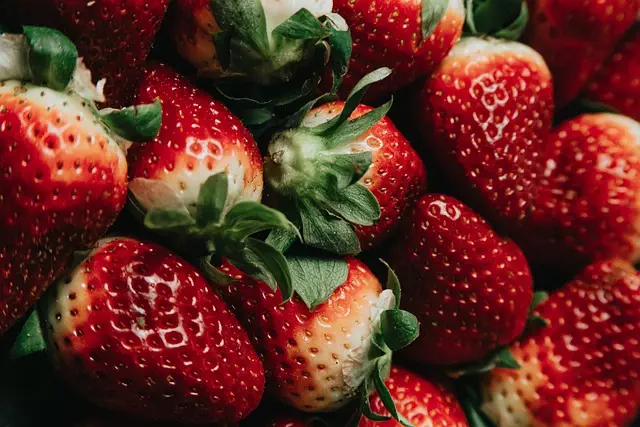The current reliance on traditional, non-renewable food packaging materials poses significant environmental challenges, prompting a transition to sustainable food packaging. Custom food packaging plays a crucial role in this shift by allowing businesses to utilize eco-friendly alternatives like biodegradable plastics, paper, and plant fibers while creating unique designs that stand out in the market. This approach reduces waste, enhances freshness, appeals to environmentally conscious consumers, and contributes to a circular economy. Businesses benefit from enhanced brand image and access to innovative design thinking, while consumers gain products wrapped in safer, more sustainable materials that minimize food waste. Food packaging solutions that are both attractive and eco-conscious can be achieved through partnerships with sustainable suppliers, optimized production processes, and creative design strategies.
In today’s eco-conscious world, exploring sustainable food packaging solutions is no longer a choice but a necessity. Traditional packaging significantly impacts our environment, leading to mounting waste and pollution. This article delves into effective strategies for reducing this footprint, focusing on innovative materials and the rise of custom food packaging. We’ll explore benefits for both businesses and consumers, providing practical implementation strategies to drive the adoption of eco-friendly alternatives in various industries.
- Understanding the Impact of Traditional Food Packaging
- Exploring Sustainable Alternatives: Materials and Innovations
- Custom Food Packaging: A Personalized Approach to Sustainability
- Benefits for Businesses and Consumers Alike
- Implementation Strategies: Taking Action Towards Eco-Friendly Options
Understanding the Impact of Traditional Food Packaging
The current reliance on traditional food packaging materials has significant environmental implications. Many conventional packaging options are derived from non-renewable resources, leading to a substantial carbon footprint and contributing to global waste issues. These materials often end up in landfills or as pollution in our oceans, causing harm to ecosystems and wildlife. The search for sustainable food packaging solutions is, therefore, more urgent than ever before.
Custom food packaging plays a pivotal role in this transition towards sustainability. By utilizing eco-friendly materials like biodegradable plastics, paper, or plant fibers, manufacturers can create innovative and effective alternatives. Customizable designs allow businesses to market their products uniquely while appealing to environmentally conscious consumers. This shift not only reduces environmental impact but also offers brands an opportunity to stand out in a competitive market by showcasing their commitment to sustainability.
Exploring Sustainable Alternatives: Materials and Innovations
The quest for eco-friendly food packaging has sparked a wave of innovation, pushing the industry to explore sustainable alternatives that minimize environmental impact. Traditional plastic packaging, once the norm, is now being replaced by materials derived from nature, such as biodegradable plastics, cellulose, and plant fibers. These options offer not only environmental benefits but also enhance the visual appeal of products on retail shelves with their natural textures and aesthetics.
Custom food packaging plays a pivotal role in this transition, allowing businesses to create unique designs and solutions tailored to specific product needs. From mushroom-based trays to cornstarch-based containers, these sustainable food packaging options are not only functional but also contribute to a circular economy by breaking down naturally or being recycled more easily than traditional plastics. This shift towards greener alternatives promises a future where food is packaged responsibly while preserving its freshness and quality.
Custom Food Packaging: A Personalized Approach to Sustainability
In today’s world, where sustainability is at the forefront of consumer choices, businesses are constantly seeking innovative food packaging solutions. One approach that has gained traction is custom food packaging, offering a personalized route to environmental stewardship. This method involves creating unique, tailored packages designed specifically for individual food products, catering to both brand identity and eco-conscious goals. By embracing sustainable food packaging, manufacturers can reduce waste, enhance product freshness, and provide consumers with visually appealing, distinctive items.
Custom packaging allows brands to stand out in a crowded market while aligning with the growing demand for environmentally friendly alternatives. It offers flexibility in materials, designs, and sizes, ensuring that every aspect of the package contributes to minimizing environmental impact. From biodegradable papers to plant-based plastics, this personalized approach enables companies to embrace sustainability without compromising on quality or brand aesthetics, thereby appealing to eco-conscious consumers.
Benefits for Businesses and Consumers Alike
The shift towards eco-friendly food packaging offers a multitude of benefits, creating a win-win scenario for both businesses and consumers. For businesses, adopting sustainable food packaging practices can significantly enhance their brand image and appeal to environmentally conscious customers. This trend also opens doors to innovation in custom food packaging design, allowing companies to create unique, distinctive, and nature-inspired product presentations that capture the attention of buyers.
For consumers, eco-friendly food packaging reduces exposure to harmful chemicals and promotes a healthier lifestyle. It ensures that their favorite foods are not only delicious but also wrapped with consideration for the environment. Moreover, sustainable food packaging solutions often encourage food waste reduction, as they are designed to keep products fresh for longer periods, thereby catering to the growing demand for environmentally conscious consumption habits.
Implementation Strategies: Taking Action Towards Eco-Friendly Options
Implementing eco-friendly food packaging isn’t just a trend; it’s a necessary shift towards sustainability. Businesses can start by adopting sustainable food packaging materials like biodegradable plastics, plant-based fibers, and recycled content. These options not only reduce environmental impact but also cater to growing consumer demand for custom food packaging solutions that align with eco-conscious values.
To move towards food packaging solutions that are kinder to the planet, companies should consider supplier partnerships, process optimization, and innovative design thinking. Collaborating with suppliers who specialize in sustainable materials ensures a steady supply of high-quality options. Streamlining production processes can reduce waste at every stage, while embracing creative designs allows for attractive, functional, and eco-conscious packaging that doesn’t compromise brand identity.


